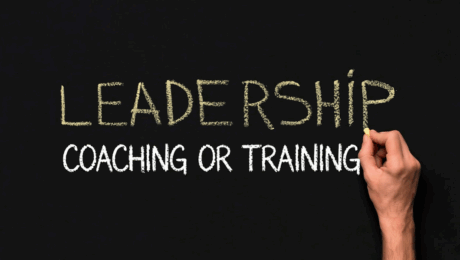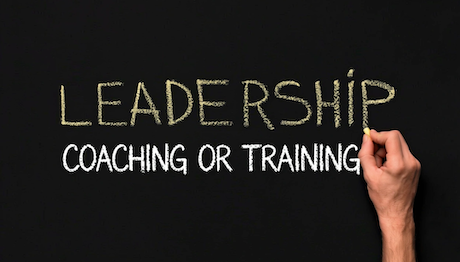As an HR leader involved in setting strategy and guiding continuous organizational progress, you play a critical role in steering your company through the complexities and challenges of large-scale initiatives. Even with meticulous planning, these efforts can falter due to common pitfalls. This article will equip you with insights to navigate HR initiatives, their obstacles, and illuminate a path toward successful, sustainable momentum in your organization.
1. Addressing Hesitation and Concerns
Hesitation is a natural response to new initiatives but left unaddressed; it can derail your efforts in driving your organization forward. The key is personalization. Develop strategies that resonate with individual concerns and motivations:
- Conduct listening sessions to understand employee fears and reservations
- Tailor your messaging to address specific concerns of different employee groups
- Provide comprehensive training and support to help employees adapt to new ways of working
- Identify and empower initiative champions at all levels of the organization
Common reasons for hesitation include fear of the unknown, lack of trust, and perceived loss of control. You can effectively minimize resistance and foster buy-in by addressing these underlying factors through personalized strategies.
Remember, people don’t resist progress itself — they resist loss. Help your employees see what they stand to gain from taking part in the initiative—both big and small.
2. Unifying Leadership for Effective Implementation
A fragmented leadership team can send mixed signals, creating confusion and undermining progress. Your role is to create a unified front:
- Organize leadership alignment sessions to ensure a shared understanding of vision and strategy that creates momentum towards the initiative’s goals.
- Develop a clear narrative that all leaders can articulate consistently
- Implement accountability measures for leaders to demonstrate their commitment to the initiative at hand
- Provide coaching to help leaders effectively manage their teams through the organizational evolution
When leaders are transparent, consistent, and united in their messaging and actions, they create a powerful foundation for successful implementation of initiatives in the organization.
3. Crafting Clear, Continuous Communication
In times where shifts occur at a rapid pace, there’s no such thing as over-communication. Develop a robust communication strategy that:
- Uses multiple channels to reach all employees
- Provides regular updates on progress, challenges, and wins
- Creates opportunities for two-way dialogue and feedback
- Addresses rumors and misconceptions promptly
Effective communication strategies should include using diverse channels, providing frequent updates, and fostering two-way dialogue. You can build trust and engagement throughout the implementation process by keeping communication clear, consistent, and responsive.
Remember, communication isn’t just about disseminating information — it’s about creating understanding and buy-in.
4. Balancing Short-Term Wins with Long-Term Strategic Goals
While quick wins can build momentum, focusing solely on short-term results can derail long-term goals around your progress initiatives. Strike a balance by:
- Identifying and celebrating quick wins that align with your long-term vision
- Consistently linking short-term achievements to the bigger picture
- Setting and communicating both short-term and long-term goals
- Regularly reviewing and adjusting your strategy to ensure you’re on track for long-term success
5. Aligning Culture with Strategic Initiatives
Culture can make or break your initiative efforts. Don’t treat it as an afterthought, but don’t assume you can simply overhaul it either. The secret is to work with and within your culture, until it evolves in the right direction.
To effectively align culture with your organizational initiatives:
- Conduct a thorough cultural assessment at the outset of your goals for organizational success
- Identify aspects of your current culture that support or hinder your goals
- Develop specific plans to address cultural barriers and reinforce cultural enablers
- Integrate cultural alignment into your overall initiative strategy and metrics
- Work within your existing culture, gently guiding it toward your desired state rather than attempting a wholesale overhaul
Remember, culture is the invisible force that can either propel or impede continuous progress in the organization. By understanding and working with your existing culture, you can illuminate a path to progress that resonates and accelerates your journey.
6. Securing Sufficient Resources
Underestimating the resources required for large-scale initiatives is a common pitfall. To avoid this:
- Conduct a comprehensive resource assessment early in the planning process
- Develop a strong business case linking resource investment to expected outcomes
- Plan for contingencies and unexpected needs
- Be prepared to advocate for additional resources if needed, using data to support your case
7. Building Sustainability into Momentum
Lasting progress doesn’t happen overnight. To ensure it endures:
- Design your initiative with long-term sustainability in mind from the start
- Embed new processes and ways of working into your systems and routines
- Develop metrics to track long-term adoption and impact
- Plan for ongoing reinforcement and evolution of the changes
As an HR leader, your role in navigating these pitfalls is pivotal. You’re not just implementing initiatives — you’re reshaping the very fabric of your organization. By anticipating and addressing these common challenges, you can guide your organization through a process that delivers lasting value.
Remember, you don’t have to navigate this journey alone. Consider partnering with seasoned experts like SparkEffect, who can provide proven frameworks and objective insights. With the right mindset, approach, and support, you can turn these potential pitfalls into stepping-stones toward a brighter organizational future.
Partnering for Success: How SparkEffect Can Help Navigate Your Journey in Progressive Organizational Improvement
As you embark on implementing large-scale initiatives, consider partnering with experts who can provide targeted solutions and support tailored to your unique needs. SparkEffect offers a comprehensive suite of services designed to help HR leaders successfully navigate organizational complexities. From direct consulting to guide your overall strategy, to leadership development programs that align and empower your leaders, SparkEffect brings deep expertise and a proven track record of success. Our executive coaching and team coaching services can help your leadership team develop the skills and cohesion needed to drive initiatives effectively, while our outplacement ensures a compassionate, supportive transition for impacted employees during restructuring.
Recognizing the critical role of the CEO and board in strategic efforts, SparkEffect also offers specialized services to help align and engage these key stakeholders, ensuring a unified vision and commitment to organizational progress at the highest levels of your organization. With SparkEffect as your partner, you gain access to a team of experienced professionals who can provide the insights, tools, and support you need at every stage of your journey into progressive organizational improvement. Don’t let the challenges overwhelm you — illuminate your path to success by partnering with SparkEffect today.







